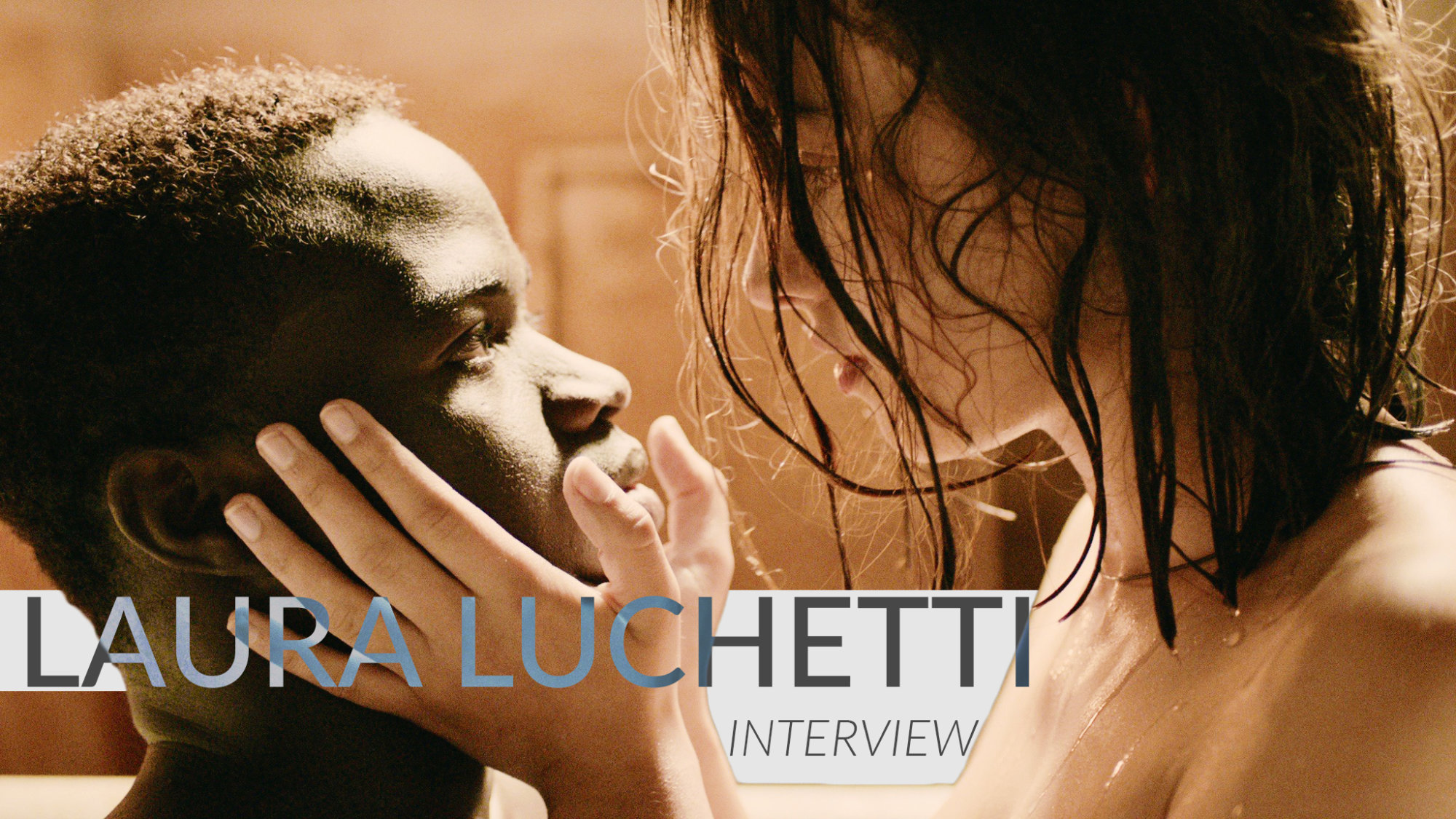There are way too many things to say about “Twin Flower” and none of them is easy. They kind of hurt, in a very unique way like papercuts under the skin, just as it hurts to be put before the suffering created by indifference; just as it hurts to see the perfect composition created by director Laura Luchetti, this heartbreaking true photograph of a fragment of Italy, Sardinia, but that could speak to all regions, to all small towns, to all the cities. Once you start watching, however, you can no longer close your eyes in front of “Twin Flower.” At the dawn of a world governed by hatred and the fear of the other, of whoever looks and sounds different, Laura chooses to tell a story of friendship without hiding behind the veil of cinematic disbelief, tracing instead the contours of a reality to which too many, too often, turn a cold shoulder.
At the London Film Festival, we had the opportunity to talk with Laura Luchetti, about the project and being a woman and a director in 2018.
“Twin Flower,” presented first at the Toronto Film Festival and now in London, follows Basim (Kallil Kone), a young clandestine immigrant who speaks only a few words of Italian, and Anna, played by Anastasiya Bogach, the daughter on the run of a migrant trafficker, whose life is endangered by the very fact that she is a girl. We could easily define the journey the two of them face as a road trip, an adventure for survival in which the road and nature are masters and rulers, but without the typical delicacies of the big screen: the one we see through Laura’s lens is nothing less and nothing more than reality, naked and sometimes harrowing, against the background of a beautiful story of love and camaraderie, of indissoluble union. A narration full of hope.
Because “Twin Flower,” although knowing how to break a heart, also knows how to warm it.
________________
How did the idea of this film come to your mind?
________________
I worked on the idea for a long time. It started from a story that a girl told me: I met her two years ago. She had escaped from Italy disappearing, to get away from a violent background and, at the same time, I got inspired by the many readings about the phenomenon of national immigration. I discovered that a very high number of people, 5000/7000, even every year, especially minors, disappear after arriving because they have no documents, they have nothing, and they disappear in the woods, in the supermarkets…The idea was mainly about the meeting of these two young fugitives who come from the same environment of the immigration traffic, but from two opposing sides because one is the daughter of the migrant trafficker while the other is an illegal immigrant.
________________
Even the two actors you’ve chosen come from stories of immigration.
________________
I looked for “Basim” among the boys who had just arrived in Italy on the various barges: I was looking for a real thing and, for this reason, I did many auditions, many meetings. When Anastasiya came in it changed everything, during our chats I discovered that she also came from abroad, that she also had to face this long journey and to adapt herself to a totally new Country and that she had the same qualities as Kallil because they are both survivors. They are not normal, they have survived a great emotional journey, as well as a geographic one. This makes them a little wild, instinctive, they understand right away because they had to fight to get where they are. It was a coincidence that made them the right ones for me.
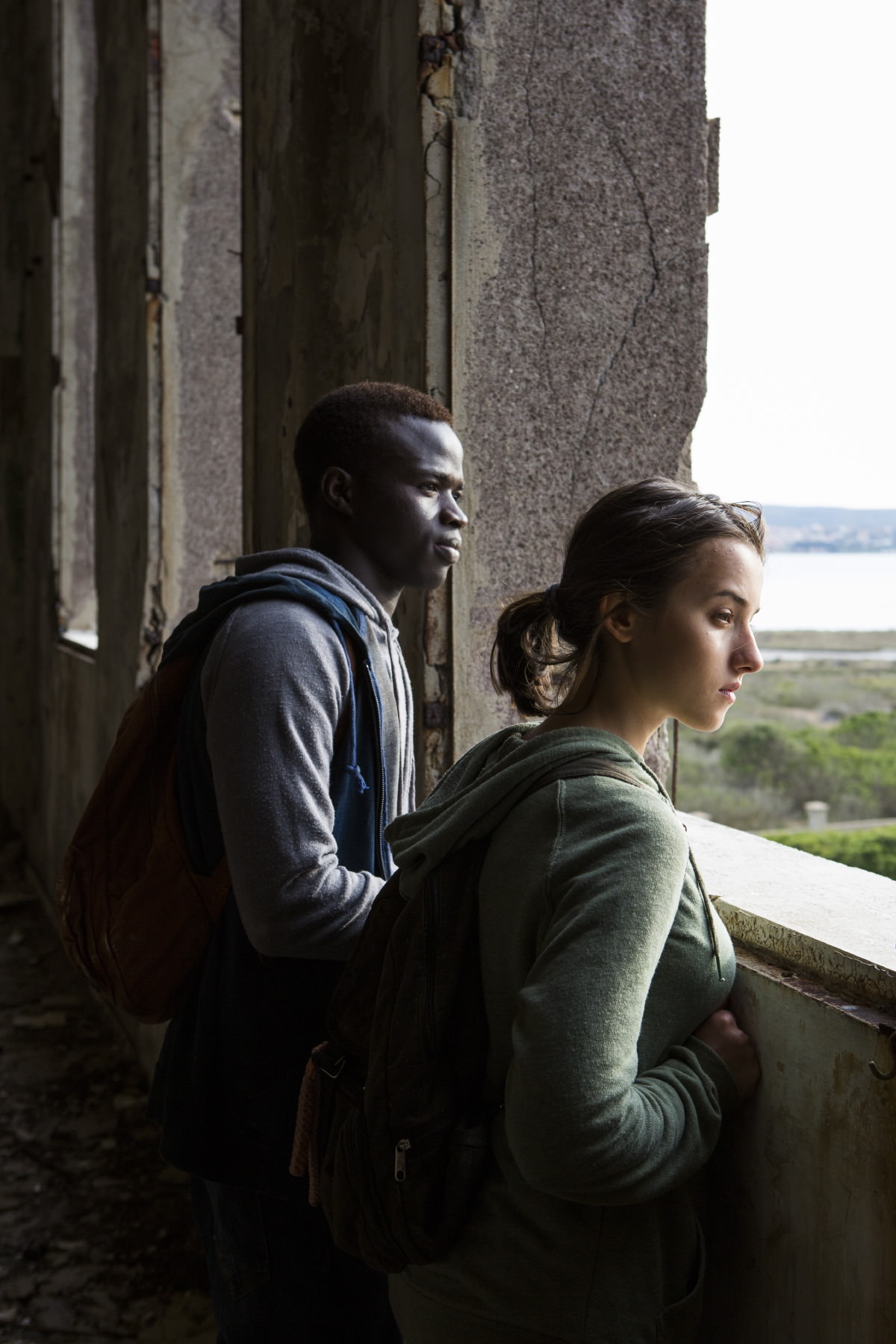
________________
In the movie, you touch pressing issues, especially the immigration and trafficking of human lives: what message would you like to give to Italy?
________________
I do not think I’m really in the position to give messages. I tell a story whose fundamental basis is that, despite the big difference in language, culture, provenance and experience, if two people meet, even casually, these differences won’t matter because at the moment these people meet they become one, they can no longer live without the other. They represent two opposing poles, and for me, this is very important. I chose this environment and these protagonists because this is the strongest thing that is happening now in Italy, it is what our country lives now. To me, it just seemed interesting to tell the story of an impossible encounter that eventually becomes fundamental for the two protagonists.
They work better together.
________________
You also talked about a third protagonist, nature and the Sardinian landscape, which is beautiful but very tough: how shall nature be read in this film?
________________
The landscape and Sardinia itself are a shelter for the fugitives, but they represent at the same time a danger. The beauty of danger is fascinating, isn’t it? And the beauty of Sardinia lies in this: it is a bit “snobbish,” you do not win it over immediately, it must be conquered, but the difficulty of the conquest is proportional to the beauty of success once you own it.
“To me, it just seemed interesting to tell the story of an impossible encounter that eventually becomes fundamental for the two protagonists.
They work better together.”
________________
The end is quite cryptic, it almost feels like Anna and Basim are reuniting with nature: should it be considered a happy ending?
________________
I am optimistic, for me there is always hope: one important thing for me in this story was to emphasize the fact that despite the experience and the dangers, which is embodied in Manfredi and the danger that he represents for children like them, despite the difficulties, violence, and atrocities, there is always hope. For me, the finale represents the beginning of a path towards the future.
________________
At the Toronto Film Festival, you had an excellent outcome, the critic loved the movie and it received an Honorable Mention from the FIPRESCI Discovery Prize jury: what reaction has struck you the most, both from the public and the critic?
________________
The reaction that resonated the most for me was the one of a man who, during a Q&A, told me that it would be difficult to forget the images of the film, to wash them away not from his eyes but from the heart. I was a bit moved because a comment like that one was worth 5 years of hard work. It is a film made with heart and instinct, I do not know if I’m good at what I do, but what I know is that I work a lot with heart, instinct and stomach.
We made this film with a lot of love and I hope that at least a little bit of this love can come out even in this screening.
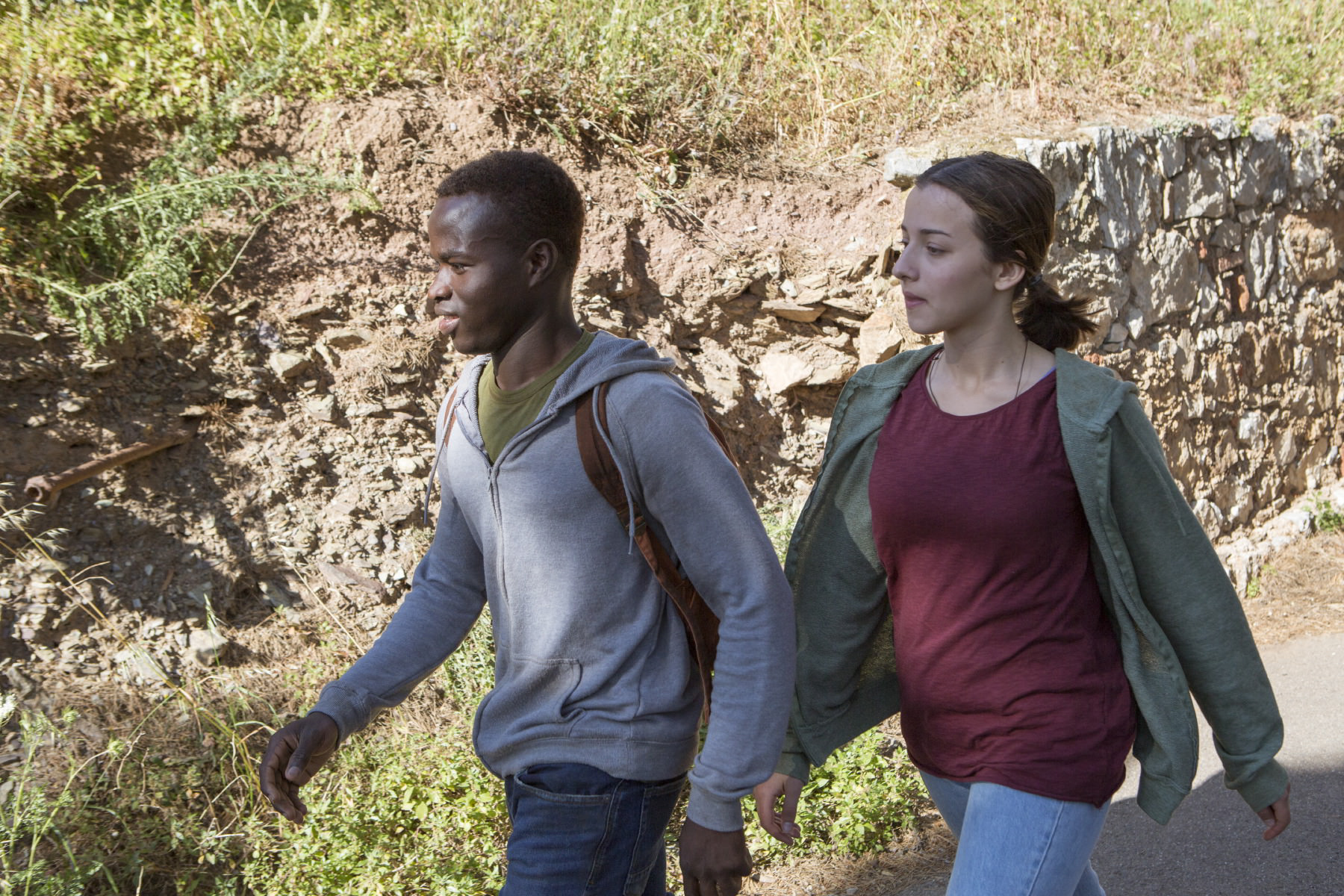
________________
Personally, I think the beginning is really hard to watch, especially when you see Basim trying to help the man with the cart…
________________
We put the camera on and we left it on for forty minutes. They were 40 minutes of positive horror for Kallil. Someone also gave him money, so he took them and gave to some black guys who were in a corner doing that exact job, telling them, “I am an actor, I give them to you” and gave them the money. He has already done those things before, he arrived in a barge, and when he arrived he was speaking the language that the character speaks in the film, a mixture between French, Italian and Bambara, his typical dialect of Côte d’Ivoire. So when he read the screenplay, he said, “It’s not that far from my story,” so his personal story was merged a little bit inside the one of his character.
He said, “It’s not that far from my story.”
________________
Now that “Twin Flower” is done, what’s in your future?
________________
A lot of chocolate (laughs).
I’m writing another story now, I also do stop-motion animation, it’s been my passion for the last 4 years. We started in Venice during the critics’ week with a project titled “Sugarlove,” voiced by Pierfrancesco Favino and Anna Ferzetti. I made another one before that had won a lot of prizes, it had also gone to the Nastri d’Argento. So, more than being on the point of starting the screenplay for another film, I hope to make soon another animation project in stop-motion, because it is my great passion.
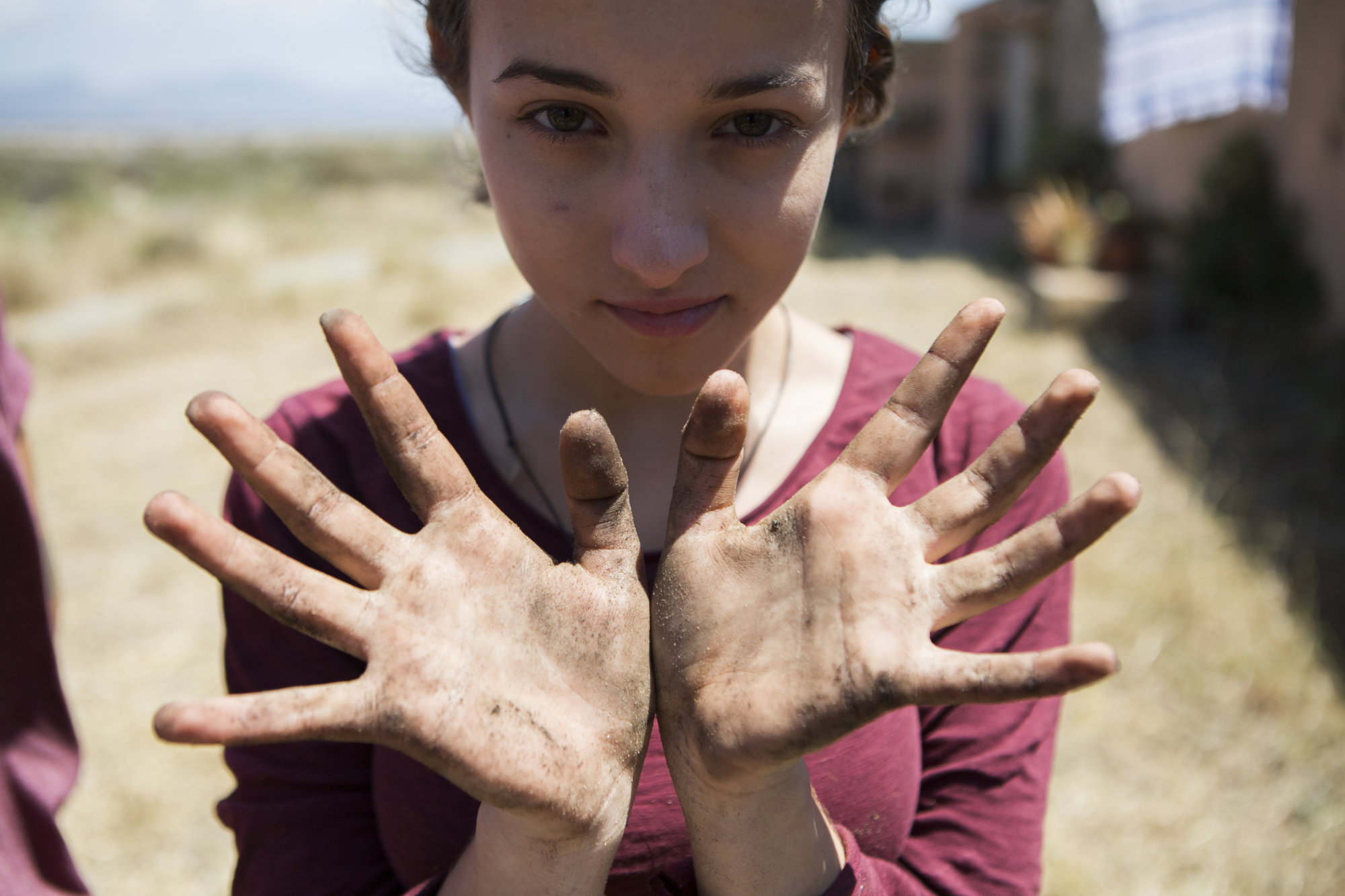
________________
It is a difficult time to be a female director in Italy, where there are also few female role models: how do you feel in this reality, and what were your greatest difficulties in dealing with a role so ostracized, in an industry dominated by male figures?
________________
The biggest difficulty is making a film first, for men and women alike.
Personally, I could say a lot but I believe in hard and serious work, in the woman’s ability to manage a job like this one and children too, because I have one and I know what it means to go on set with a small child. This is the hardest thing for those who do totalizing jobs, but it is also for those who work in an office from 9 am to 5 pm. It goes without saying that there is the need of a “special” law that helps us to have the same opportunities but I hope for the best, after all, the number of women doing this work is growing. Slowly we are growing, it may have been difficult but there are great resilience, strength and attention to details in being a woman. Personally, I think about working and going forward, and if there are problems I try to solve them, there is a need to do this together with other women, and to receive help that gives meaning to the word “equal opportunities,” even if what you need to achieve is job’s quality: you have to be able to do things not only because you are a woman, but because you are looking for the highest possible quality within your limits.
________________
Is there a director who inspired you during your career?
________________
I have many: in the end one falls in love with the films of some directors, you try to imagine them, to metabolize them, there are certain times when you think about original ideas and instead they were something that had already been done in the past. A director that I love is Agnès Varda, wonderful, a mad genius, she made some wonderful movies that I like a lot.
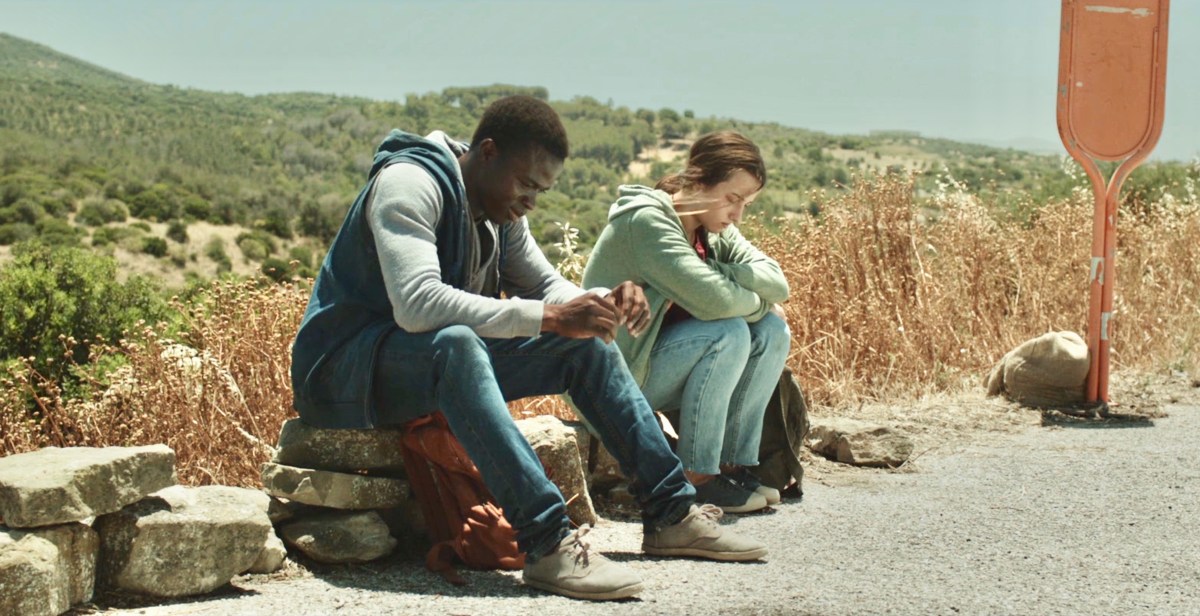
FREEDOM.

